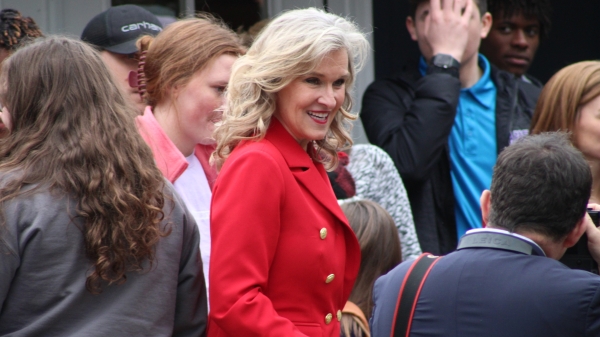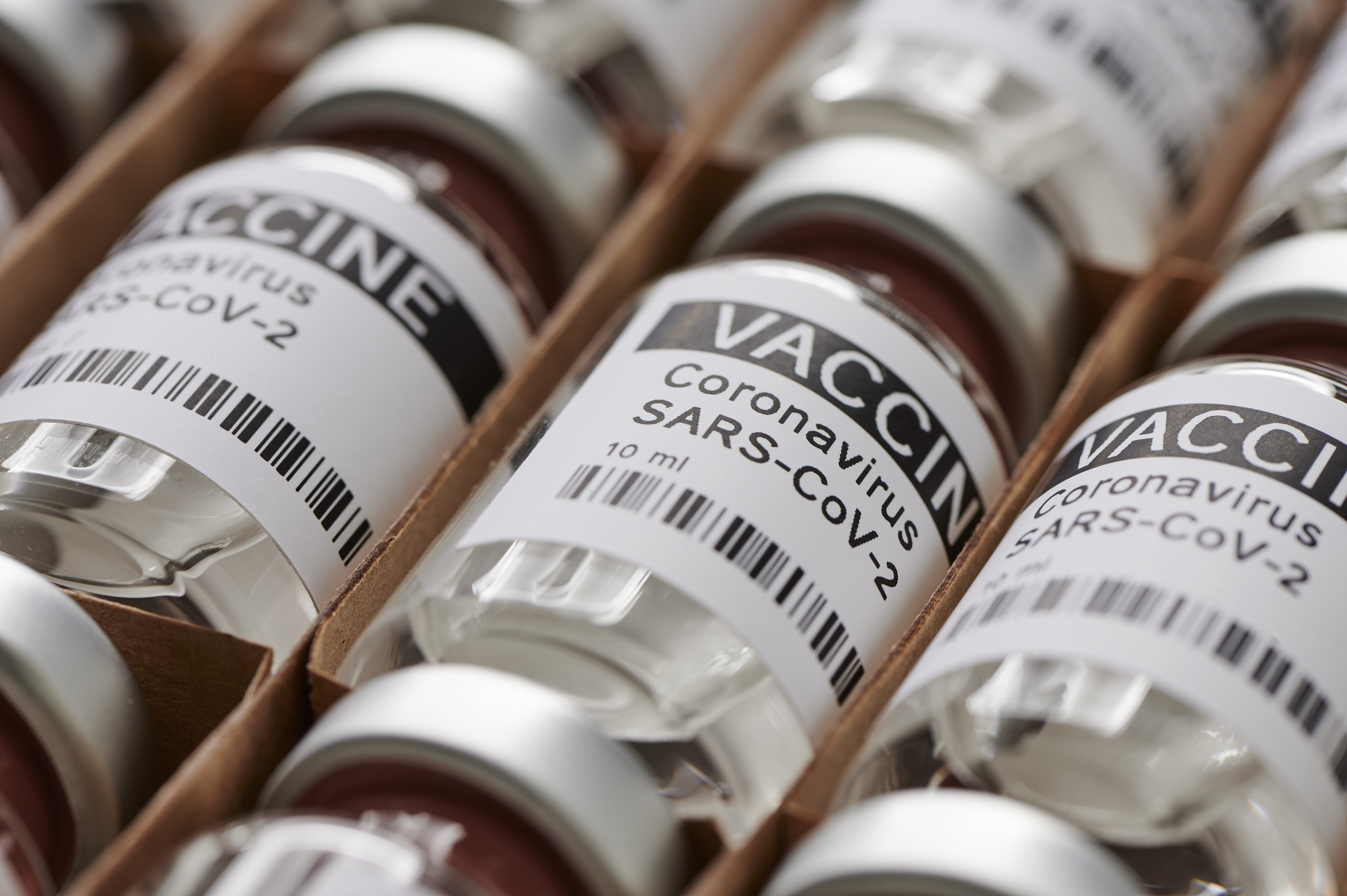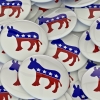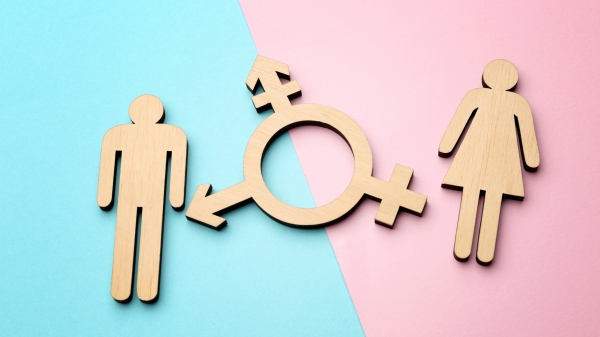The World Trade Organization is meeting to discuss waiving vaccine patents to make it easier for countries to access COVID vaccines. The global trade body will review the proposal to waive pharmaceutical vaccine patents as part of a menu of trade pandemic response policies.
Eric LeCompte is the executive director of the religious development group Jubilee USA Network.
“Not enough vaccines are getting to developing countries,” said LeCompte. “Part of the solution is supporting countries to produce the vaccines that they and other countries desperately need.”
LeCompte is advocating on behalf of this proposal as well as others under consideration and debate this week at the WTO.
According to the United Nations, wealthy countries received 82 percent of the COVID-19 vaccine doses, while poor nations received less than 1 percent.
LeCompte told APR that, “75 percent of the total vaccine dosages manufactured to date have gone to just ten countries – the wealthiest countries.”
APR asked: The vaccine was developed by private companies working with the understanding that they would be well compensated if they got their products to market in a record speed? Is there a danger that if government betray the trust of those companies that they may not be as willing to come to the rescue the world the next time we need their assistance?
“Those companies, with the exception of Pfizer, took government assistance to develop the vaccine,” LeCompte said. “They used government money to develop the vaccine so it was public assistance that paid for the development of the vaccine. Moderna is not enforcing its patent rights because they developed the vaccine with government funds.”
“We support a temporary suspension in the patent licenses in order to maximize the dose of vaccine manufactured,” LeCompte said. “If we allow it to run loose down there it will develop into more new variants and then come back here and do more damage. It has already done $9 trillion in damage to the world economy.”
APR asked: Some have suggested that since most of the deaths from COVID-19 are in people who are either aged or have co-morbidities that the actual economic downturns from COVID has more to do with the government response to the virus, economic shutdowns and such, rather than the actual damage that the virus is able to inflict on workers in their prime working years?
“This pandemic has certainly been a challenge,” LeCompte said. “I feel actually that the government response was not robust enough. The stimulus enacted by the previous administration and the current one has failed to deliver relief to ordinary people.”
APR asked: Brazil is still losing over a thousand people a day and over half of those deaths 275,000 have occurred since March 13, after the vaccine became available. The country appears poised to overtake the death total of the United States before the end of September. What special issues are there in Brazil that has made the virus so difficult to combat there?
“There are multiple issues in Brazil,” LeCompte said. “The government response was very unorganized.”
“If we let Brazil manufacture their own vaccines in their own factories that would increase the supply of vaccine available to combat the virus there,” LeCompte told APR. “The major problem there is that the vaccine is not reaching low income and middle income people,”
“If we don’t do something to help with the situation in the developing world then it will affect their ability to purchase our exports there, as well as our ability to purchase imports,” LeCompte told APR. “It is really in all of our best interests to address this.”
APR asked: Peru has already lost over .58 percent of its population to this virus, by far the highest death rate in the world, and is still not under control there. Is there anything the international community can do to help Peru end this plague?
“Beyond the temporary patent suspension, vaccine distribution is very one sided with most of the vaccine going to the wealthy countries,” LeCompte said. “The world needs to produce 11 billion doses of vaccine and get it in to people’s arms.”
APR asked: Pfizer has said that the vaccinated should get a third shot as a booster at some point months after the second shot, if this recommendation is implemented could this exacerbate the difficulty in getting COVID-19 vaccine to the developing world?
“It is certainly a possibility,” LeCompte said acknowledging that there is a possibility that a third shot might prove necessary once the research is available.
“The G20 missed an opportunity to allow nations to produce their own vaccines,” LeCompte said hoping that the WTO does not similarly choose not to act.
“Without enough vaccines, developing countries continue to lose lives and jobs,” said LeCompte. “We must move as fast as possible so all people can receive coronavirus vaccines, therapies and medical equipment to respond to the crisis.”
The IMF has warned of a trend where rich countries have too many vaccines while developing countries face deep vaccine shortages. This is extending the economic downturn from the pandemic. The World Bank reported that two-thirds of developing countries are expected to be in worse economic shape than they were before the pandemic.
APR asked: In Alabama over half of Alabamians who are eligible to get the vaccine have not. On Thursday, Alabama Governor Kay Ivey said that it is time to start blaming the unvaccinated for the continued COVID-19 crisis. Is this a problem outside of the U.S.?
“It is,” LeCompte said. “Here people are either not taking the time to go get the shot or are refusing to take the shot. We are unique in the developed world that we have more vaccine than we have people who are willing to take it.”
LeCompte said that vaccine resistance is much stronger in the U.S. than in other countries
“If we had the vaccine in the developing world people would line up to take an injection in their arms to protect them from the virus,” LeCompte told APR.
LeCompte is concerned that the WTO may delay taking action in this week’s conference.
“Every moment we delay acting, means more lives lost and more countries face prolonged economic crises,” said LeCompte.
Pressure for a vaccine access process intensified on the WTO after the Biden Administration called for a COVID waiver on vaccine patents. The administration supports WTO action to temporarily waive vaccine patents. While the WTO is considering this proposal, it is not expected to implement any action until the fall.
“Unless we act quickly on global vaccine access, most of the world’s countries will see lost decades of development,” stated LeCompte. “As the crisis worsens in developing countries, wealthy countries will face more economic shocks.”
LeCompte has tracked or participated in WTO, IMF and G20 meetings for more than a decade and is a UN finance expert. His group has mobilized nearly 270 organizations to focus on trade, debt and tax elements of COVID response.
4,181,143 people globally have died from COVID-19 and the virus continues to spread.




















































